How to Declutter Your Home Even If You Don't Have Time, According to an Expert
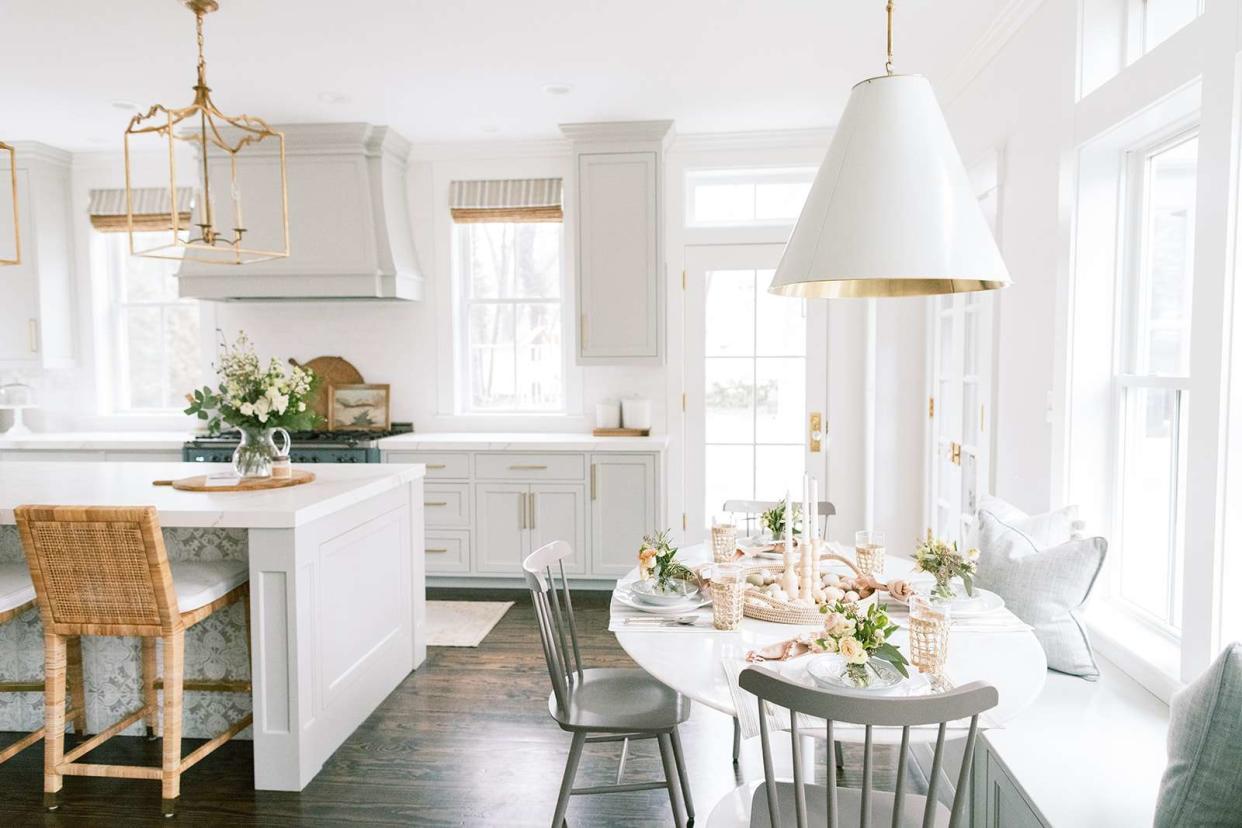
In theory, the start of a new year is a fabulous time to tackle a major declutter. But in practice, it can be a bit more complicated.
Once post-holiday life resumes, things often feel a bit busier, more hectic, and, if we’re honest, downright draining. Who has time to declutter after all that?
As it turns out, you might. We turned to Dr. Regina Lark, organizing expert and author of "Psychic Debris, Crowded Closets," who offered her tips and tricks for finding the time to get organized and making it a habit that sticks.
Meet the Expert
Dr. Regina Lark is an organizing expert and author of "Psychic Debris, Crowded Closets," and she is passionate about accessible, inclusive organizing methods.
Start With a List
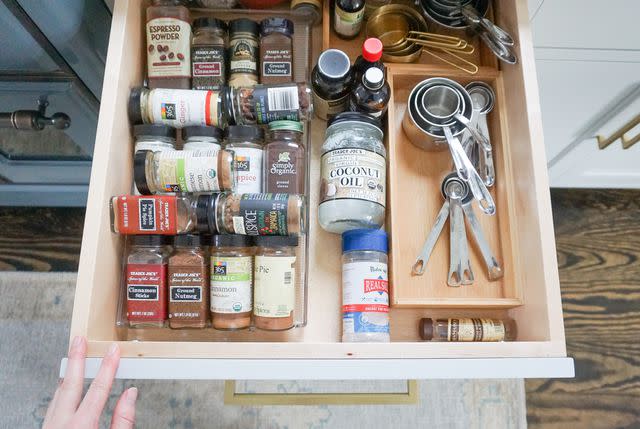
Dr. Lark suggests starting with a structure, like a list. Make a list of all the areas in your home you want to declutter, then estimate how much time you want to spend on each area.
“Go ahead—tackle one of those areas, and see where you land,” Dr. Lark says. “I suggest starting with something easy, like the junk drawer, which shouldn’t have too many emotional attachments.”
Set a Timer
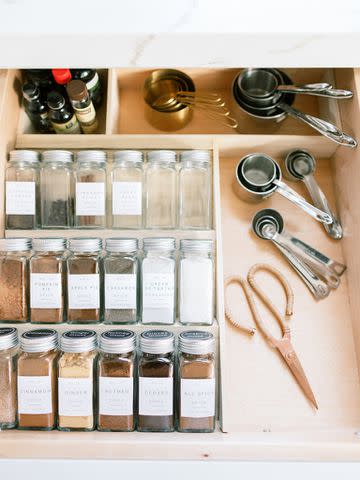
As you start with your first zone on your list, Dr. Lark suggests setting a timer for the exact amount of time you guessed that zone would take. Once the timer dings, assess your progress.
“How did you do?” Dr. Lark asks. “I encourage you to allow this exercise to begin your journey into shifting your relationship with time.”
Once you understand the time required to declutter, you can make an honest plan to help you get the job done.
Set Small, Achievable Goals
If you wake up one day and announce you’re going to declutter the whole house, chances are low you’ll succeed. That’s because, as Dr. Lark explains, you’re better off chasing small goals you’re guaranteed to achieve.
One of her favorite methods is to clear ten things a day. It's a trick she learned from a friend, and it’s as simple as it sounds. Simply pick ten items, large or small, that you no longer want in your space and clear them out.
Make Decluttering a Daily Habit
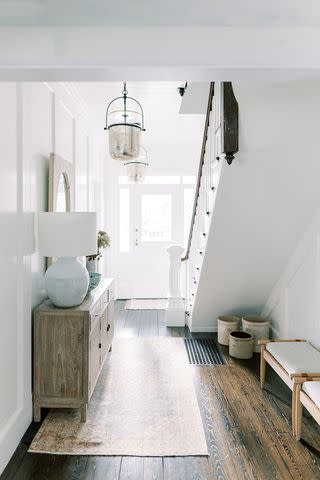
Whether or not the "ten a day" trick will work for you, there’s another lesson from Dr. Lark buried in the method. Decluttering should be a daily habit, even if you don’t spend much time on it each day.
“To increase the likelihood that you will succeed, dedicate a specific, short amount of time to decluttering each day,” she says. “Even fifteen minutes can make a difference if you're consistent.”
Declutter During Downtime
With only fifteen minutes a day dedicated to decluttering, Dr. Lark notes that this means it can be easily done during your downtime.
“When you have a few minutes free, like while waiting for your coffee to brew, uploading a file, or waiting for the clothes dryer to stop, decide in advance what little declutter project you want to tackle and go for it,” she says.
Identify the Problem Zones
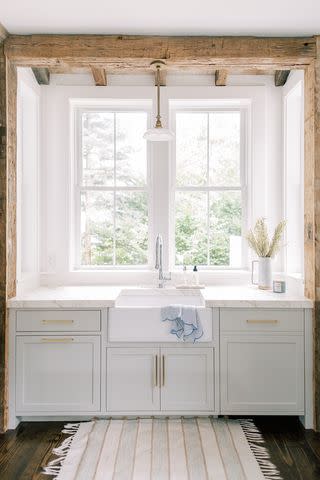
Now that you’ve tackled the smaller areas, like junk drawers and countertops, it’s time to go for the bigger spaces—the true problem zones, if you will.
“Any zone in your home that’s filled with more than the space can reasonably accommodate is a problem zone,” she says.
Think closets, dresser drawers, kitchen cabinets—anywhere that gets regularly used and reshuffled until it's inaccessible.
Stop Holding Onto "Someday" Items
We’ve all held onto something under the misguided assumption we might need it again someday. Dr. Lark says it’s officially time to let this idea of ‘someday’ go.
“If someday does finally arrive and you don’t have the thing, you can probably substitute something else, borrow it from a friend, or buy it again—because it’s likely something you can pick up easily,” she says.
To do a pass through your home and search for these "someday" items, Dr. Lark suggests checking the most common areas. Look in your home office for old electronics and office supplies, bathroom cabinets for expired medications and other old toiletries, as well as the garage for... well, anything.
“Garages typically become a dumping ground for items that are out of sight and thus out of mind,” she says.
Consistency is Key

Start your day by decluttering and you’ll feel accomplished and productive! End your day by decluttering and you’ll feel mentally calm and ready for the next day!
There's no perfect time of day to declutter. Instead, Dr. Lark says the real key is to find consistency. Then, it’s more likely to become a habit.
“What’s your energy level? Are you a morning or night person? Do you get enough rest? Are you eating well? What do YOU know about yourself so that you can make smart decisions about when to do the work,” she says.
Make It Fun
If the act of decluttering makes you shudder, then maybe it’s time to reframe the whole process. Think of it as an act of self-care or an opportunity for discovery.
“Put on some music, light a candle, or invite a friend to help you,” says Dr. Lark. “Decluttering doesn't have to be a chore. Turn it into an opportunity to refresh your space and rediscover items you forgot you had.”
Then, once you’ve finished an area on your list, celebrate!
“Treat yourself to something you enjoy,” she says.” This will help you stay motivated and reinforce the positive aspects of decluttering.”
Decluttering Is a Process
“Remember, decluttering is a process, not a one-time event,” Dr. Lark says. “The more you declutter, the easier it will be to maintain your cleared space.”
Read Next: 7 Clutter-Causing Items in Your Closet You Should Throw Away Right Now
Read the original article on The Spruce.

